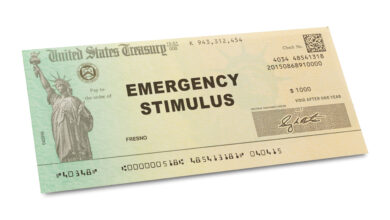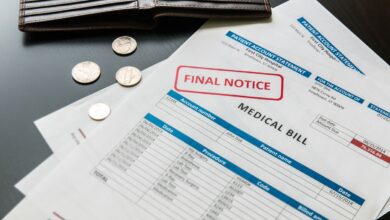Higher gas prices are hitting us hard. They are blowing our budgets, changing our buying patterns, causing us stress, and even altering our daily lifestyles.
The biggest impact appears to be on our spending habits. More than seven in every 10 Americans recently polled by DebtHammer say they have already had to make some difficult money choices due to the additional expense incurred by higher gas prices. DebtHammer aims at helping Americans get out of debt.
A quarter of all Americans are being hit hardest. They say they are accumulating debt or are unable to pay a bill because of the additional money they are spending on gas, which has been hovering above $4 a gallon, about 30% above the level at which it stood a year ago.
Not the only hit
Gas prices are not the only additional hit to our wallets. Overall inflation, which now stands above an annual rate of 8%, has also been adding to financial strains on many of us.
An added pressure is being placed on workers who are increasingly being required to return to work in the office rather than continue to work at home. The move comes as the higher gas prices have sharply chased up commuting costs by car.
Changes in lifestyle
The recent survey of 530 Americans by DebtHammer found:
• Higher prices are causing us stress.
The survey found that a third of all Americans say that stress over rising gas prices is keeping them awake at night.
• Our spending patterns are changing.
Half of those polled say the high gas prices have triggered daily changes in their lifestyle in order to make ends meet.
Among the changes are:
—Cutting back on groceries (25%);
—Eating out less regularly (51%);
—Fitting errands into one longer trip rather than several shorter ones (45%);
—Cutting down on entertainment (37%);
—Buying fewer clothes (36%); and
—Buying fewer items for personal care (21.6%).
• Where we buy gas is changing.
Most of those polled said they will buy their gas more often at pumps operated by grocery stores or warehouse clubs in order to achieve the rewards savings that they offer.
Others say they will be sure to use credit cards that offer rewards points for gas purchases.
• More of us prefer to work from home.
Not unexpectedly, a quarter of all workers say they would rather work from home until gas prices settle down. Four in every 10 say they would save more than $50 a week by working from home rather than commuting; two in every 10 put the savings at $25 to $50 a week. One in every 10 put their savings at more than $100 a week.
Two in every 10 workers say they will try to find a new job should gas prices continue to remain high and their employer insists that they commute five days a week.
• A quarter say they will walk more.
Instead of traveling by car people say they will walk more. This likely means that they will visit those stores that are within reasonable walking distance, walk to nearby restaurants, or walk to visit friends.
• Some will carpool.
In previous hikes in gas prices, many workers turned to carpooling. They were able to share the costs of the commute and were able to use carpool lanes so that they could avoid traffic snarls. Now 14% say they are turning to carpooling. This figure could rise, however, as the return to office work increases and should gas prices continue to stay high for an extended period of time.
• Only a few of us are turning to public transportation.
In spite of the changes that have caused us to tighten our belts and crunch our budgets, only 12% are switching to traveling by subway, bus, or light rail instead of by car. Some 8% are turning to riding bicycles.
• A few will place their children on school buses.
Instead of driving their children to school, only 3% plan to start using school buses. This move depends, however, on how far the parents have to drive and whether it remains more convenient for their schedules to drive the children to school.
• Summer travel is back.
In spite of the gas increases, more than half of those polled say they are planning to take a vacation this summer. The destination choice might change, however, in order to save on travel costs.
A little more than a third say they will vacation closer to home. A quarter say they will fly rather than drive this year; they might, however, reconsider their choice should airfares continue to climb in line with the oil price.
The answer?
Unfortunately, there is no single piece of advice or silver bullet that will solve the problems of those who are struggling to afford the higher gas prices, says Dorothy Kelly of the University of Virginia McIntire School of Commerce.
Did you find this content useful? Feel free to bookmark or to post to your timeline for reference later!






